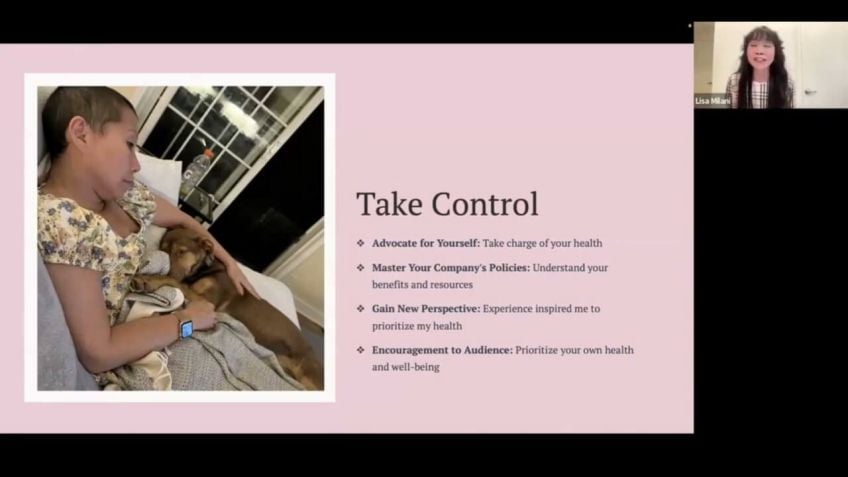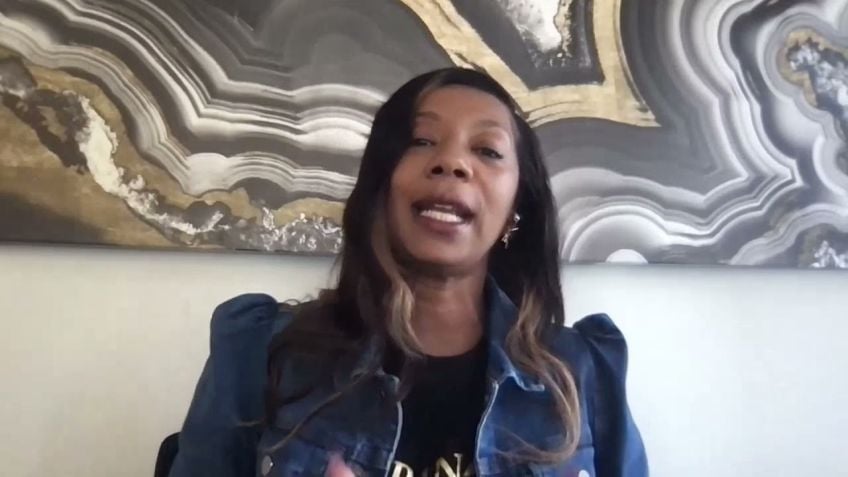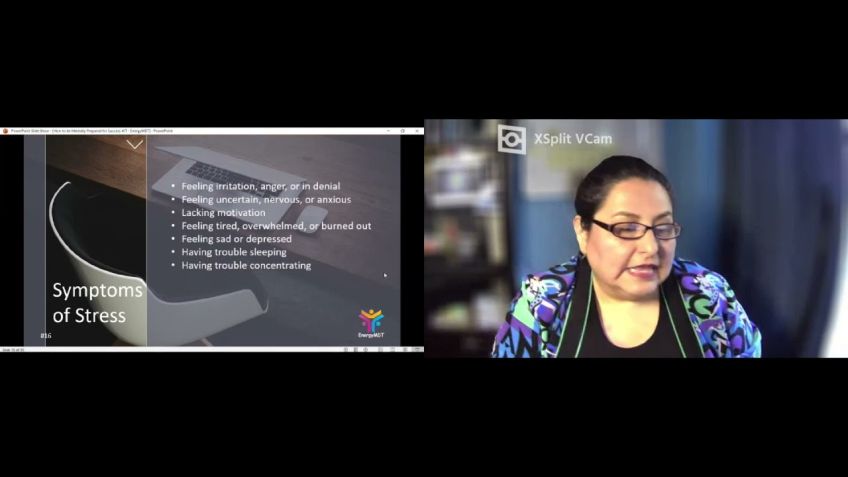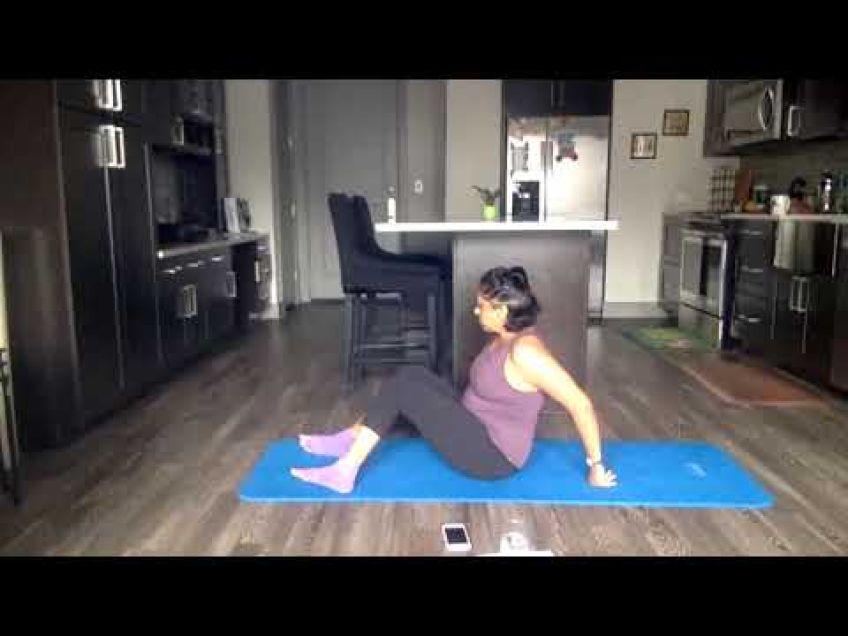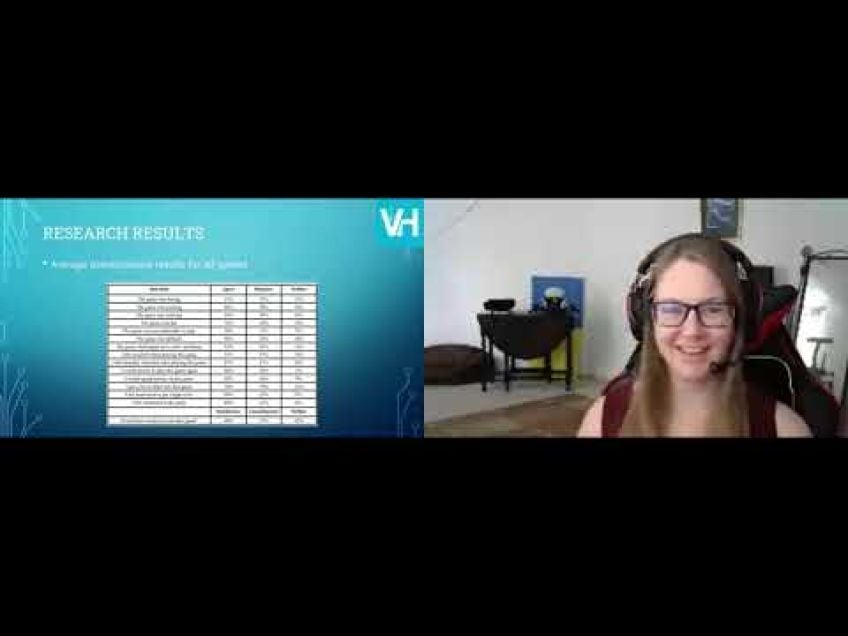Alana Karen Well-Being Ups & Downs: 18+ Years Growing Up in Tech
Maintaining Well-being in the Tech Industry by Alana Karen, Google Director of Search Platforms
Emphasizing the need for personal and mental health management in the ever-growing tech industry, Alana Karen, Google's director of Search Platforms, shares her personal experiences and valuable insights. This insightful guide seeks to assist tech professionals as they navigate the dynamic and often demanding tech industry landscape.
Living and Thriving in the Tech World
Lorem ipsum dolor sit amet, consectetur adipiscing elit. Ut facilisis nisl sem in tincidunt felis maximus id. Karen provides a firsthand account of her day-to-day experiences working at Google, shedding light on the highs and lows that accompanied her personal and professional journey.
Highlighted by her candid narration of a particularly difficult period in her tech career, Karen emphasizes the importance of personal health and well-being in the demanding and dynamic tech world. By sharing her experiences, hers is not just a lonely story, but a series of learnings that can help many navigate difficult times effectively.
In the presentation, she draws attention to a notable point: the need for prioritizing personal health and mental well-being to ensure optimal efficiency and productivity in the workplace.
Navigating the Tech Maze - A Personal Insight by Karen
Karen's story begins back in 2017 when she was tasked with assisting 600 employees who were downsized at Google, while juggling her personal life crises.
Insights for Better Well-being: Tips & Techniques
To optimize personal health and well-being, Karen offers some practical suggestions:
- "Going to the doctor; It's important to rule out medical conditions first," she states underlining the need for timely medical consultations.
- "Take vacations, but know how to take care of oneself better daily and sustain in hard times," reiterates Alana.
Addressing Mental Health
Additionally, Alana Karen underscores the vital role of mental health, linking it directly with physical well-being. Citing her personal experiences, she highlights how mental health issues can lead to physical symptoms, further impacting sleep and overall wellness. Therapy and meditation, she suggests, are effective tools for mental health management.
Conclusion
In Alana’s Karen speech, the essence of personal health, mental well-being, and appropriate stress management techniques resonate prominently. By cultivating these habits, tech professionals can ensure a healthier, happier, and more productive work-life balance. Championing these practices in their personal lives can lead to a more potent, positive impact on the broader tech industry and society.
Let’s give a round of applause and sincerely thank Alana for her enlightening and inspiring talk. Her experiences and insights are invaluable to help us all navigate the dynamic and often demanding tech industry landscape.
Please connect with her and continue the conversation.
Video Transcription
We are gonna move very quickly. Uh We're just a few minutes behind our schedule here. So I'm gonna make this brief but also want to give full credit to Alana Karen. She is amazing. She's the director of sh search platforms at Google.So hopefully she can bump women tech net up for us, so we can get lots of visibility today. Speaking of which, make sure you're on social. Hashtag WTGC 2020. I'll drop that in there. Uh Just kidding. She's not gonna hack any uh search engines for us. That was a, a bad search joke. Uh But she is going to talk about uh Google and her experience and I always love these stories because she's gonna share her uh experience of growing up in tech. So without further ado, I wanna give you all the time. We can thank you, Alana and over to you. I could see your slides. Do you want to test your audio? Hello? Yes, you're up and going. So let's uh give a welcome to her and let us know where you're coming from. Thanks.
Ok, awesome. Um Well, great to join you today. Oh, I have to cough that up. So, um I'm really happy to present this to you. We're shifting gears somewhat um from the great presentation we just saw because I'm about to get highly personal um and into the nitty gritty of what I've experienced. Um And in particular, I crafted this uh presentation last year really when I was processing a particularly hard time that I'd experienced what, while I was working in tech, both personally and professionally and I wanted to share it with others to hopefully help them through their hard times as well.
Um But little did I know what 2020 would bring? And the recent months and weeks have really shown a bright light on the necessity of taking care of ourselves and each other. Um And at a broader, deeper level across society. So while this presentation is focused on my personal health and our personal health, I also didn't want to ignore where we are right now. So you'll see, I've woven in some more recent thoughts as we go. So going back in time, it's 2017 Google fiber which I'm working for has decided to re resize its team drastically. And I spend most of the year helping 600 people who were downsized, find roles back in the rest of Google. I'm also dealing with a family crisis. And by September, my vision has gone wonky and my left foot is numb. One day I'm walking, it goes numb and it doesn't come back. This isn't the first time I've come face to face with emotions and fatigue in the workplace. But honestly, this was the first time that I thought I might have to quit. So I did all of the things and I should note that I'm really lucky that these resources were all available to me, including going to the doctor. I know some people avoid them. But when things like this happen, it's important to rule out medical conditions first.
And of course, I did my all time favorite vacation which helps um and it's somewhat harder to do nowadays, but it still left me with the question of how can I take my take care of myself day to day better? How can I sustain in the hard times and not just take a vacation from them? And I think that's more relevant ever than now when we see a long road ahead of us with no clear timeline for when things will change. This is something I drew out, don't deeply analyze it. I think the impressive things to point out point out is how little I cared about the 2002 breakup. Um But how and and how each child incrementally got easier, not that I'm recommending having three kids, but I knew what to do along the way. 2017 that we talk about is illustrating how this was both a personal life and a work life peak for me, for stress. And that's why they came together this way. And it's just worth noting that 2020 is kind of off the charts too. And probably for a lot of us whether, whether it's what we're battling at work at home or the combination. And really, I wasn't asked here to speak today because I know everything. Um really, I'm here because I'm very open about this journey, about the importance of mental and physical health and the importance for all of my team members for their well being.
I think the questions that we grapple with are relevant to our work and our products. How can we be great leaders and employees if we're struggling physically or mentally, how can we build great products if we don't understand and accept the full implications of being human and how do we make both good work and good life decisions? So I'm gonna talk about some things that I found were the really important levers levers for my health. Um Big disclaimer. I worked at Google, but I'm not like an expert in health, but I would say I'm a big expert in control freaks. And so figuring out what are the things that we can use to maintain our well being? What are those levers we have can be really critical? I think as you look along the list on the right, you'll say you've heard about a lot of these things before, but before I started to really dig into it, I did not know why they mattered. Why using some of these would really help my overall health. I should note this list reflects various sources and some sources will also mention healthy relationships. I'm not going to cover that today, but I will just note that the operative word is healthy.
So if you want to have relationships help you, you do have to make sure that they are ones that actually help you and your soul. All right, starting to go through these items. When I had my first child, I researched the best roller system as first time parents do it arrived shiny and beautiful, but I didn't practice closing it until after the baby arrived. It had this like you had to push and you kind of had to do two pushes at the same time. And I think whoever had tested this while it was very safe, I do not think that they had ever um, done it when they'd been up all night and maybe had the life sucked out of them every two hours. Um So I remember weeping and screaming a lot and why is this adults need 7 to 9 hours of sleep per night? If that's what if that's not what you get? You're not alone, especially during stressful times. Like now, approximately one in three American adults isn't getting enough sleep. According to the American Academy of Sleep Medicine, this is something I drew out with my son at one point and we started to draw the relationships between this. I wouldn't get too analytical about it.
Like the, the arrows are sometimes different colors, but it's gonna be a guide to you. As I talk about some of these health reasons why these things happen, what happens when we don't get sleep? We're tired, our brain is tired, we do all kinds of things to compensate. Not always. Well, we're more likely to have an accident, be emotional, less focused, have memory problems and also lack of sleep is linked to anxiety, depression symptoms. We increase our disease risk and illness. Early studies have linked lack of sleep with an increase in cancer such as breast cancer and we're hungry and we eat badly. Does this sound familiar? Multiple studies suggest a relationship with increased obesity risk and also propensity for unhealthy eating choices. The good news is if you pick one thing, pick sleep, I know that's hard. Sometimes the National Sleep Foundation has tips like no screens before bedtime. The most important thing I think is to put it on the list. Many of us view this as uh it's like on, on our checklist of top things to do. Many of us don't view that this way. We view it as a luxury and for people like first line responders right now, it really is. But I do think that if more of us shift to thinking of this as a necessity of sleep as a necessity, it will change our lives, just finishing out the animation, healthy eating.
So my body and I have obviously a long relationship with food, but I also have a long relationship with stomach problems. And many doctors have recommended that I give up carb. And I told them no, because for me, bread equals joy. But I do also eat kale. And why is this? Well, it's no joke about the smart foods. As I draw this out, you're gonna see how this all starts to connect alcohol and sleep and caffeine are known sleep killers. Almost everything we eat is converted by our body into glucose that provides the energy. Our brains need to stay alert. When we're running low on glucose, we'll have trouble focusing. Disappointingly. Our brains function best when we choose a nutritious and balanced diet, high quality foods contain antioxidants, vitamins and minerals. Those are like kale, salmon, blueberries, think of this like premium for fuel.
When we choose things that are high in fat or high in sugar, those things might give us quick releases but damage us in the long term. Bad foods can cause swings in blood sugar linked to bad brain health and mood affects inflammation and stress to the brain. And multiple studies have found a correlation from a diet high in refined sugars and impaired brain function impacting our moods such as depression. Many of the of us know this, but we don't always make healthy decisions in the moment. HBR has suggestions like making eating decisions before you're hungry, grazing throughout the day. So your glucose doesn't bottom out and keeping healthy foods close by like almonds. And as we regularly see headlines about disparities in the world, think briefly about how many of us are privileged to even have these decisions in many places. There's limited access to healthy food, fruit and vegetables, think how that would impact us over our lifetimes, not just in our short term energy, but our long term health and well being our vulnerability to illness and depression and then the ripple effect of those issues, the rest of our life, our ability to work our need for health care and so on.
If you can help others here, I ask you to think about that. You could see how key this would be exercise back when I was at the office regularly. I had a sure date each week, Pilates, I am still doing yoga and Pilates regularly at home. It helps with my anxiety and medical professionals. I talk to recommend aerobic exercise three times a week to help with that. What are the connections here? Exercise boosts happy chemicals releases endorphins. It leads to positive feelings, reduces anxiety and stress. Consistent exercise can improve sleep over time, not immediately and it improves self-confidence. There's multiple studies showing the links between exercise and productivity and also spending time outdoors. I know this isn't always accessible to everyone. I try I suggest doing shorter sessions.
There's a lot of online videos available now, particularly now that are often free for ideas to how to even get moving 10 minutes at a time. I've talked about mental health a couple of times here and I wanna revisit it back to 27 to 2017 when we ruled out terrible physical things that might be going on. MS brain tumors. Thank goodness doctors started to tell me in the nicest possible way that it was in my head. And as my physical therapist explained, we're now discovering more and more links between mental health and physical condition. To be blunt. When we feel shitty, we feel shitty. It's worth noting how common anxiety and depression are, anxiety disorders are the most common mental illness in the US affecting 40 million adults in the United States. Age 18 or older. That's 18.1% of the population every year. And just for context that compares to 17% of the US population with blue eyes, only 36.9% receive treatment. And if you're comparing against the global population, 13% of the global population has any mental or substance use disorder, that's 970 million people. There's really no reason for us to feel alone.
I will also note these numbers were pulled before the recent months and we are seeing that emergency hotlines are seeing a sharp rise of people in emotional distress and the rise of depression, anxiety is being noted across the resources that support them building on this. I go to therapy regularly and I can personally tell you I get a lot out of paying someone to hear me vent. It's an outlet and my therapist serves as an important mirror holding up a light to what stories I'm telling myself. I regain my balance. I store less negative emotion and that helps my confidence in preparing for this talk. I found a treasure trove of studies and reports about mental health impact on work and vice versa. It's worth menting. It's worth noting that mental health has a link to how we physically feel and it can present physical symptoms such as my gastrointestinal distress or my wonky vision, most notably health, mental health problems impact our sleep, which can then become a spiral, impacting everything else I don't take for granted that therapy can be costly and there's also other societal barriers.
I'll note many workplaces pay for EAP the employee employee assistance program which provides free third-party counseling resources if not available. I'm also seeing more and more nonprofits that can provide support if you need assistance. An example I recently saw was the Loveland Foundation which has a therapy fund for black women and girls watching time. So I'm just gonna speed through meditation even though I think it's awesome. Um A lot of people will think of meditation as sort of maybe soft or a little too I don't know, hippie, nothing against hippies. Um But I use it as a form of prayer, of reflection, of clearing my mind. And I think that with the increasing noise in the world, there's reasons why many of us would now feel a rising need to unplug or to breathe. Even if just for a moment, there are a ton of studies on this as well. Um This is an area where I could have lost myself, our moods, our reactions, our cognitive function, our memory, the brain is able to soothe itself through meditation, even building additional white matter. So if you want a bigger brain, that's your path. We in turn, make better decisions about our health exercise and eating are notable here, ultimately reducing our risk of disease, notably cancer, heart disease and stroke. And of course, we come full circle research is showing that mindfulness can help those with sleeping difficulties, find the rest they deserve.
Um In particular by helping them control runaway thoughts. I've used headspace an app that runs you through simple meditations of links. You can choose, they have a free trial and they are also providing it free for a year to those who are unemployed right now. So just to wrap it up, I I know people run through this with me and then they're like, but how do I do this? All I can't provide you exact instructions. You are the CEO of your life and many of us might be thinking some of these things are indulgent right now. But again, I wonder how we can take care of others. If we don't first take care of ourselves, how can we sustain through these hard times and be there for the long run and make the world better if we don't start at home? So think of these tools as things that can contribute to a happier healthier. You, a more effective you and you can start small as a mom of three. I do not get to these things every week, but I know I can go to them when I'm feeling stressed, groggy, moody when I'm making bad health decisions. So my suggestion start with three deep breaths, get a full night's sleep and go from there.
Great. Thank you so much, Ilana. Great advice, lots of different variety of diversity. So, thank you so much. Let's give her a round of applause. Please connect with her again. We are running about 21 or two minutes behind and so I'm gonna have to pedal straight into our next presenter. Uh My name is Nicole. I'm your MC. Thank you again, Alana.

